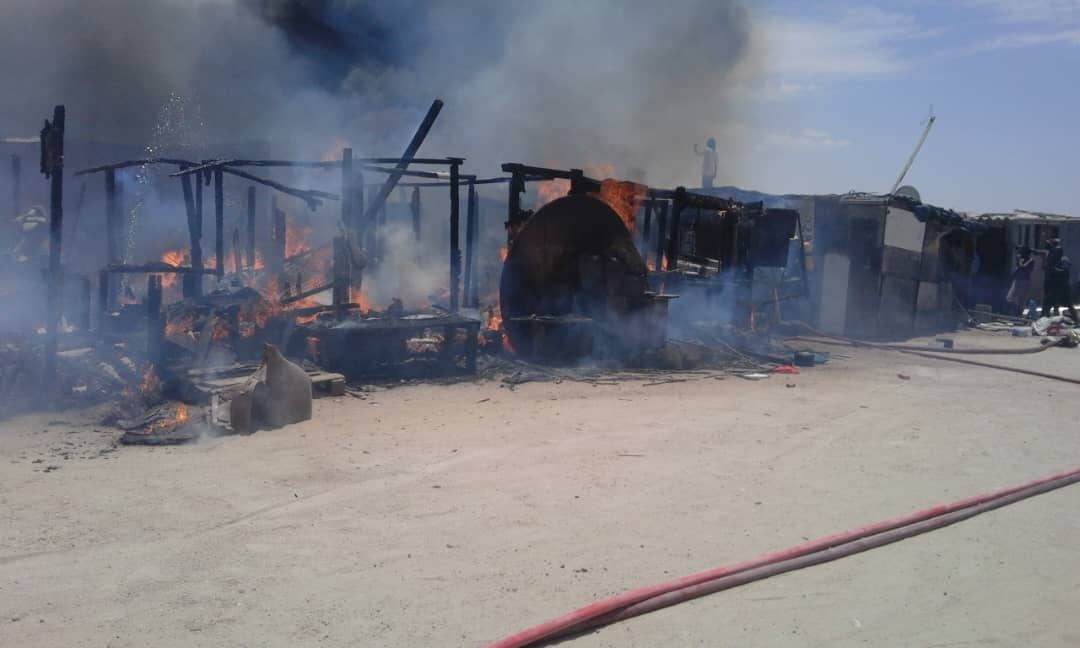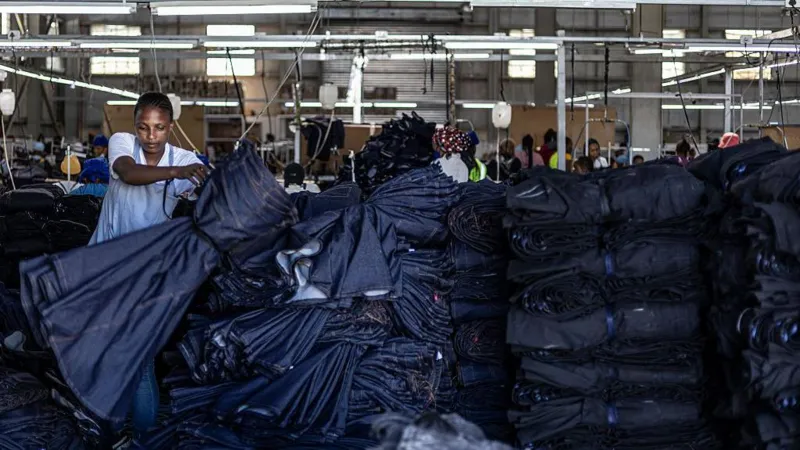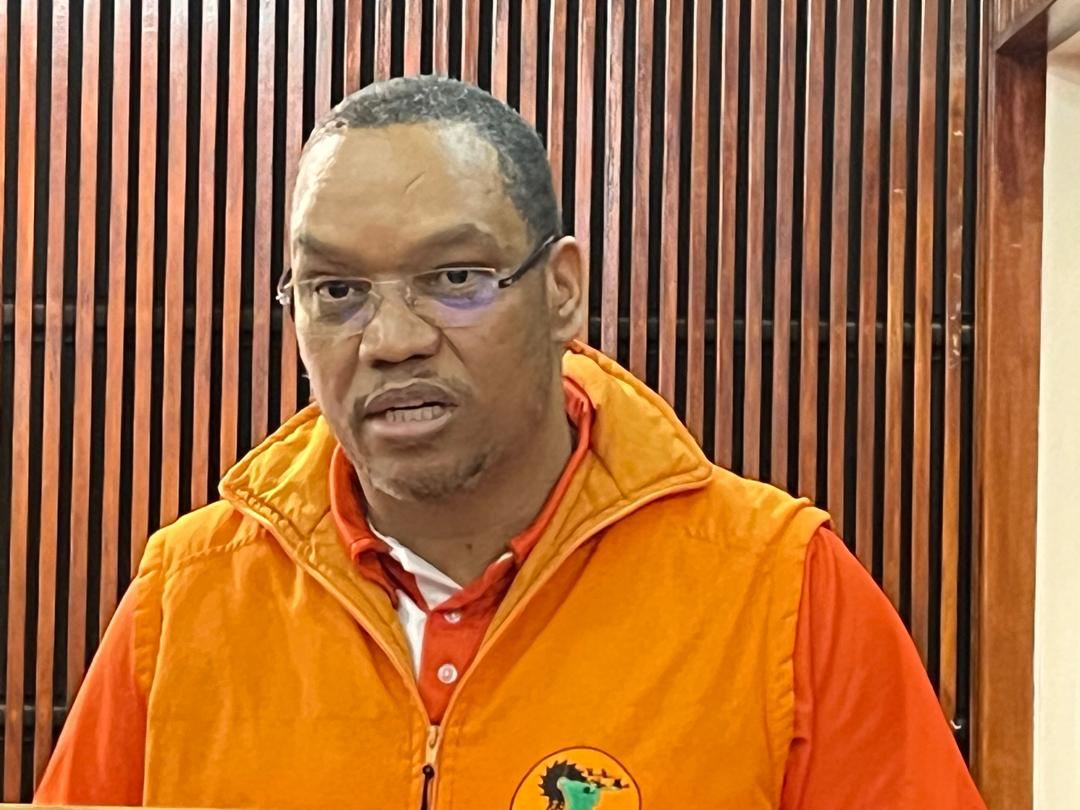ONGATA RONGAI, Kenya – A convoy of shiny, 4 x 4 vehicles roars into the pot-holed main street of a small town, kicking up dust and scattering people in their way.
As traffic grinds to a forced halt, corpulent politicians emerge from their cars to wave at crowds of mainly young men, some still fingering the small amounts of money and food they have been given to come to the rally. A series of speeches offers the crowd a bright new future – jobs, free secondary education, new roads – if only they will vote for the men in front of them.The crowd roars slogans.But as the politicos speed off to the next town, locals grumble at the paucity of handouts.It’s election time in Kenya, and the promises are flying as much as the dust.With two months to go before parliamentary and presidential polls in east Africa’s largest economy, the political class is out in force, campaigning furiously across the nation.Money is flowing, and not all of it legitimately: an election official said this week many people were selling their voter registration cards, egged on by both major parties.Posters are springing up across the nation.In Nairobi, the large, beaming visage of opposition front-runner Raila Odinga took an early lead in public prominence.But a photo of President Mwai Kibaki, fiddling with his cuffs a trifle awkwardly, is making a strong comeback.Odinga’s recent surge in polls, to overtake Kibaki in popularity for the first time, has given impetus and edge to the campaign.It could be one of the closest of late in Africa.Feeling and looking like he is on a roll, Odinga and his entourage swept into Ngong town this week, the “captain” – as aides call him – waving beatifically from the open door of his orange-coloured ‘Pentagon 1’ campaign bus.The colour comes from Odinga’s Orange Democratic Movement (ODM), while the Pentagon alludes not only to American-style power but the five-man leadership of the opposition party.”I am saying ‘Kibaki go away’ because he has failed the test,” Odinga told ululating supporters on a sports field at the bottom of the Ngong hills, made famous for many in the West as the backdrop to the ‘Out Of Africa’ book and film.Yet Odinga was five years ago telling very similar crowds to vote for Kibaki and get rid of President Daniel arap Moi.Such is the hurly-burly of Kenya’s non-ideological politics.ETHNIC LOYALTIES The pair fell out in 2005 – Odinga campaigned against Kibaki in a referendum and was promptly sacked from his cabinet.So now Odinga, a 62-year-old veteran politician and businessman, repeats a daily mantra that Kibaki has failed Kenyans on corruption and tribalism.He is vowing to better Kibaki’s decent economic record of average four percent annual growth, devolve power to provinces, and set up a ‘Truth, Reconciliation and Restitution Commission’ offering amnesty to those who pay back ill-gotten money.Kibaki (75), and also a veteran both of Kenyan politics and business, hopes economic growth, his popular introduction of free primary education, and fears that Odinga could be a left-leaning radical once in power, will win over voters.”You can list all the good things you have seen,” Kibaki told a recent rally in the Rift Valley town of Nakuru, where the crowd struggled to get to grips with chanting the initials of his new coalition Party of National Unity (PNU).”I ask you for a second term.When I finish I’ll go home and farm, and you’ll be able to elect a young man of your choice.”Most Kenyans agree – in private, if not always in public – that it is ethnic loyalties, not cerebral considerations, that will exercise the minds of most voters on polling day.Many in Kibaki’s Kikuyu tribe, the largest in Kenya, have prospered under him and fear losing their economic prominence.Odinga comes from the Luo group in west Kenya, and is also picking up support from other tribes who feel excluded.But in Ongata Rongai, a dishevelled trading town outside Nairobi, it is neither issues nor tribalism on the mind of driver Mwangi Njenga as he sees a political caravan go through.”Look at all these people here.They have been fed four mandazis (Kenya’s version of doughnuts) and they have stopped work to wait for someone who will not come,” he says disdainfully of a crowd waiting for Odinga, who did not show up.”At least when Kibaki came, he gave the transporters’ association 100 000 shillings (about N$10 500), so the day was not completely wasted.”Nearby, a boy cradles a torn poster of Odinga and asks his mother if he can swap it for a mandazi.Nampa-Reuters (Additional reporting by Wangui Kanina)A series of speeches offers the crowd a bright new future – jobs, free secondary education, new roads – if only they will vote for the men in front of them.The crowd roars slogans.But as the politicos speed off to the next town, locals grumble at the paucity of handouts.It’s election time in Kenya, and the promises are flying as much as the dust.With two months to go before parliamentary and presidential polls in east Africa’s largest economy, the political class is out in force, campaigning furiously across the nation.Money is flowing, and not all of it legitimately: an election official said this week many people were selling their voter registration cards, egged on by both major parties.Posters are springing up across the nation.In Nairobi, the large, beaming visage of opposition front-runner Raila Odinga took an early lead in public prominence.But a photo of President Mwai Kibaki, fiddling with his cuffs a trifle awkwardly, is making a strong comeback.Odinga’s recent surge in polls, to overtake Kibaki in popularity for the first time, has given impetus and edge to the campaign.It could be one of the closest of late in Africa.Feeling and looking like he is on a roll, Odinga and his entourage swept into Ngong town this week, the “captain” – as aides call him – waving beatifically from the open door of his orange-coloured ‘Pentagon 1’ campaign bus.The colour comes from Odinga’s Orange Democratic Movement (ODM), while the Pentagon alludes not only to American-style power but the five-man leadership of the opposition party.”I am saying ‘Kibaki go away’ because he has failed the test,” Odinga told ululating supporters on a sports field at the bottom of the Ngong hills, made famous for many in the West as the backdrop to the ‘Out Of Africa’ book and film.Yet Odinga was five years ago telling very similar crowds to vote for Kibaki and get rid of President Daniel arap Moi.Such is the hurly-burly of Kenya’s non-ideological politics.ETHNIC LOYALTIES The pair fell out in 2005 – Odinga campaigned against Kibaki in a referendum and was promptly sacked from his cabinet.So now Odinga, a 62-year-old veteran politician and businessman, repeats a daily mantra that Kibaki has failed Kenyans on corruption and tribalism.He is vowing to better Kibaki’s decent economic record of average four percent annual growth, devolve power to provinces, and set up a ‘Truth, Reconciliation and Restitution Commission’ offering amnesty to those who pay back ill-gotten money.Kibaki (75), and also a veteran both of Kenyan politics and business, hopes economic growth, his popular introduction of free primary education, and fears that Odinga could be a left-leaning radical once in power, will win over voters.”You can list all the good things you have seen,” Kibaki told a recent rally in the Rift Valley town of Nakuru, where the crowd struggled to get to grips with chanting the initials of his new coalition Party of National Unity (PNU).”I ask you for a second term.When I finish I’ll go home and farm, and you’ll be able to elect a young man of your choice.”Most Kenyans agree – in private, if not always in public – that it is ethnic loyalties, not cerebral considerations, that will exercise the minds of most voters on polling day.Many in Kibaki’s Kikuyu tribe, the largest in Kenya, have prospered under him and fear losing their economic prominence.Odinga comes from the Luo group in west Kenya, and is also picking up support from other tribes who feel excluded.But in Ongata Rongai, a dishevelled trading town outside Nairobi, it is neither issues nor tribalism on the mind of driver Mwangi Njenga as he sees a political caravan go through.”Look at all these people here.They have been fed four mandazis (Kenya’s version of doughnuts) and they have stopped work to wait for someone who will not come,” he says disdainfully of a crowd waiting for Odinga, who did not show up.”At least when Kibaki came, he gave the transporters’ association 100 000 shillings (about N$10 500), so the day was not completely wasted.”Nearby, a boy cradles a torn poster of Odinga and asks his mother if he can swap it for a mandazi.Nampa-Reuters (Additional reporting by Wangui Kanina)
Stay informed with The Namibian – your source for credible journalism. Get in-depth reporting and opinions for
only N$85 a month. Invest in journalism, invest in democracy –
Subscribe Now!










